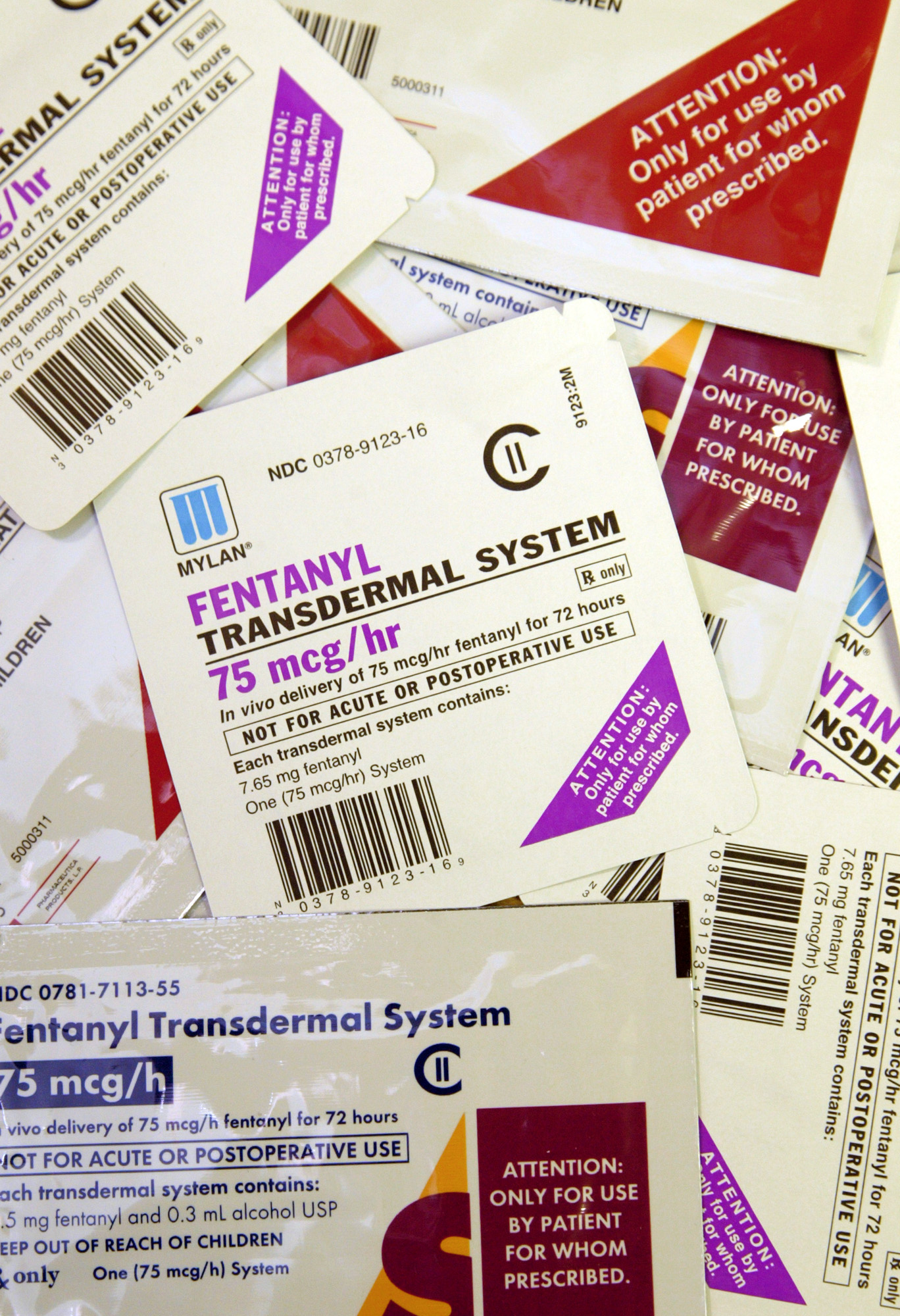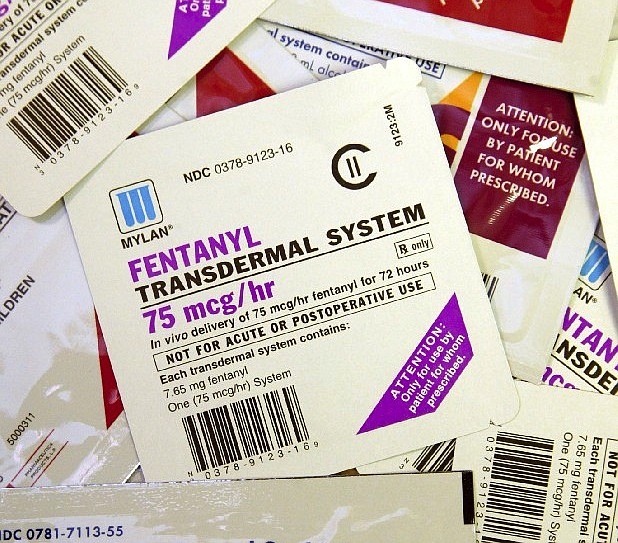 Different brands and dosages of Fentanyl patches, marked with warnings about non-precribed uses in St. Louis. Fentanyl is a narcotic that is typically administered to people in chronic pain, including end-stage cancer patients. It is also used as an anesthetic. It is considered 80 times more powerful than morphine and can kill by inhibiting breathing.
Different brands and dosages of Fentanyl patches, marked with warnings about non-precribed uses in St. Louis. Fentanyl is a narcotic that is typically administered to people in chronic pain, including end-stage cancer patients. It is also used as an anesthetic. It is considered 80 times more powerful than morphine and can kill by inhibiting breathing.ABOUT FENTANYL The drug was responsible for 21,196 emergency room visits in the U.S. in 2010, according to the U.S. Department of Health and Human Services. It is the fourth most commonly overdosed painkiller behind oxycodone, hydrocodone, and methadone. Fentanyl patches come in strengths ranging from 12 micrograms to 100 micrograms. The one found on Bryant's back was 25 micrograms.
Authorities have launched a homicide investigation into the death of a nearly 2-year-old Chattanooga boy after an autopsy found a lethal amount of a powerful painkiller in his bloodstream.
A report from the Hamilton County Medical Examiner's Office completed Saturday concluded that Demarcus Bryant died March 22 as a result of a 25-microgram fentanyl patch on his right midback.
Manner of death was homicide due to "fentanyl patch placed by someone else," the report states.
Fentanyl patches are a slow-release pain medication. The drug is the sixth most commonly prescribed narcotic painkiller in Tennessee, according to a recent report from the state health department.
Bryant's death is the third due to fentanyl in the Chattanooga area in the past five weeks. Two Athens, Tenn., men died April 11 after overdosing on the drug at what one official called a "pain patch party."
Chattanooga Police Department spokesman Tim McFarland said officers are working with the medical examiner's office and the district attorney's office in an investigation of the boy's death.
Bryant's aunt found him dead in a playpen at 7:30 a.m. on March 22, and the medical examiner was notified at 7:44 a.m. according to the report.
Neither the boy's parents nor the aunt was identified.
A physician at Highland Pediatrics said fentanyl can be used to treat children, but typically only in cases of intense pain.
"It's just like any other pain medicine," Dr. Allen Coffman said. "It's a narcotic and the patches are slow release, so we use that in chronic, contractible pain. The most common instances would be in children who have cancer -- specifically bone cancers that can be very painful."
Contact staff writer David Cobb at 423-757-6731 or dcobb@timesfreepress.com.
